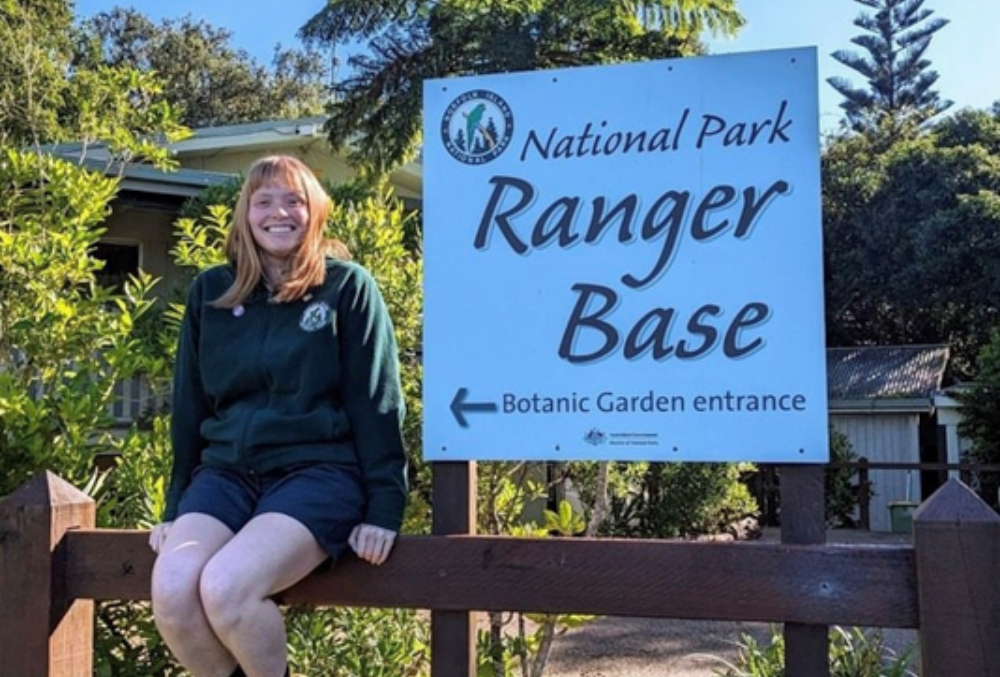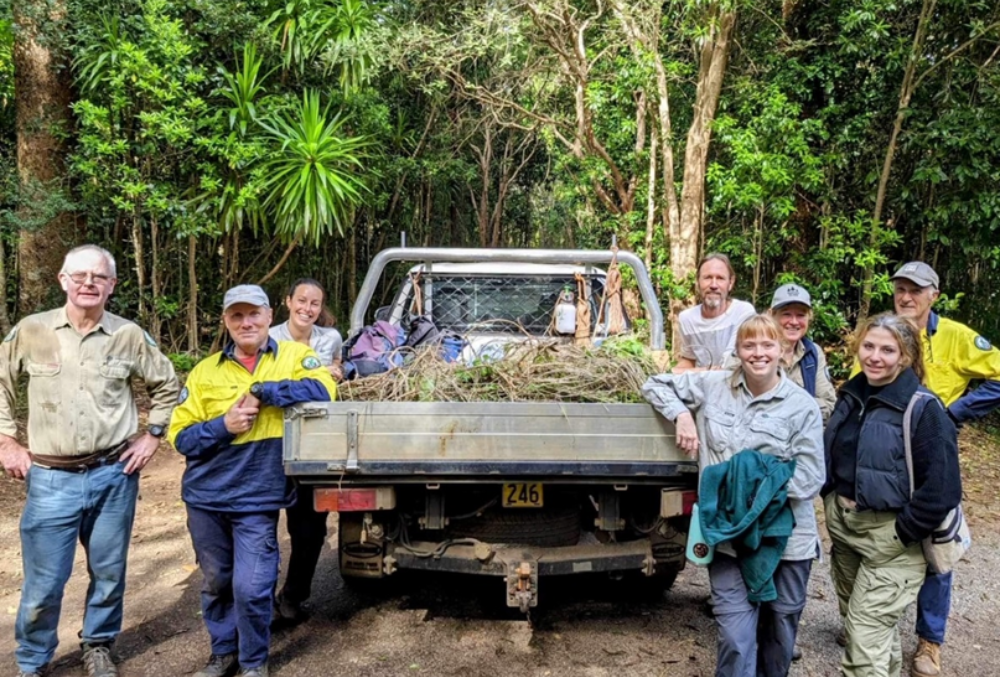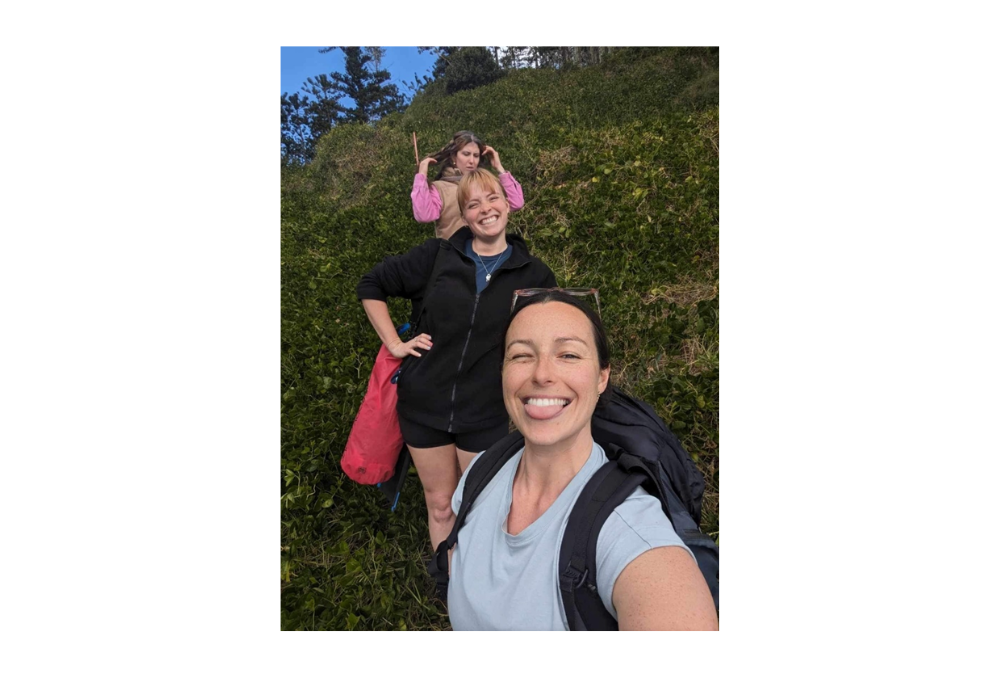Department of Climate Change, Energy, the Environment and Water (DCCEEW)
Tiffany Tisher
6.00 AM
I wake up and spend the first 15 to 20 minutes of my morning doing some light yoga. I then make breakfast and get ready for work. As part of my graduate program at DCCEEW, I’ve been lucky to get a 3-month remote rotation out at Norfolk Island, working for the National Park. Here the bird life is noisy and noisy early, so I eat my breakfast outside watching the birds and admire the view of our neighbouring island, Phillip Island.
7.00 AM
It only takes me five minutes to drive to work but work starts early here at 7am. The first thing we do is have a morning coffee catchup with the whole park staff team. People talk about what they will be doing for the day and how their evenings were - It’s a very close-knit friendly group here.

7.30 AM
My morning is spent at my desk, checking my emails, and creating a list of tasks for the day. Most of my emails consist of parks mailing lists, news events, tasks from my supervisor, graduate training, module reminders or correspondence with other organisations.
As part of my graduate program, I have weekly module training that teaches me about different policies, writing briefs and government decision-making. The content usually consists of watching videos, reading articles, and writing discussion posts on the forum pages. This academy work includes not just our department’s graduates but also other departmental cohorts, who I get to collaborate with sometimes for team training. This week we are looking at data held by government agencies and how this can help make well informed decisions and how to present the data appropriately.
8.00 AM
My major project for this rotation, is to put together an education and volunteer strategy as part of the 3-year Visitor Engagement Masterplan. I’m still at the early stages of development so my work is focused on researching what other parks and institutions have put together for their education programs, volunteer programs and understanding how they successfully engage, educate, and inspire people. I’m currently collaborating with the local school, regional council and between our park teams to figure out what we can put together as an annual program for students and volunteers.

9.30 AM
Every Monday I get to assist and participate in our weeding volunteer program. This is one of the highlights of my week, as I get my hands dirty out in the park pulling weeds. PPE is important so I get geared up in long pants, a long-sleeve shirt and boots and ensure I have my gloves, glasses and weed whacking tools with me.
Ipomoea is the villain of this story, an introduced weed that is a big problem across the park as the vines take over large areas, outcompeting native vegetation. But we can’t just cut the stems, you must pull out the full vine from its root and follow where it branches off. It’s fun chasing down the vines and afterwards you bundle them up and you either put them in the shade or spray them with herbicide so they can’t regenerate.
As I work, I’ll chat to the volunteers and ask them questions about why they volunteer, what aspects of it they enjoy and what more they would like to do with the park.

12.00 PM
After some hard work weeding, it is time for lunch. Our office is right next to the botanic gardens, so I like to find a nice spot in the sun while I eat my food.
12.30 PM
I refocus on my strategy development for the afternoon which involves developing an implementation plan that has objectives, actions and outcome indicators that will be implemented over the next 3 years. I also brainstorm ideas for Norfolk Island National Park content for student workbooks, teacher’s resources, and educational activities.
2.30PM
I have a catch up with the other regional graduates to see how they are going living and working remotely at other national parks across Australia.
3.00PM
I finish work and if the sun is shining, I will go for an exploration around the island. This involves either a walk through the National Park or along one of the island’s beaches. When it’s warm enough I’ll jump in the water for a dip to finish off a great day at work.

5.00 PM
After a swim and a snack, I’ll head to yoga for a relaxation session to get me chilled out for the evening.
6.00 PM
Home time now where I’ll cook myself dinner using local fresh produce that I get from the Saturday farmers markets. On island it’s hard to get a lot of produce so you’ve got to get creative with what is in season.
I also use this time to call my family or a friend to see how they are going.
9.00 PM
By this time, I’m in bed with a good book and soon off to sleep as work will be another early start.
Thinking of experiencing life as a DCCEEW Graduate? Sign up to GradAustralia to receive job alerts for DCCEEW .